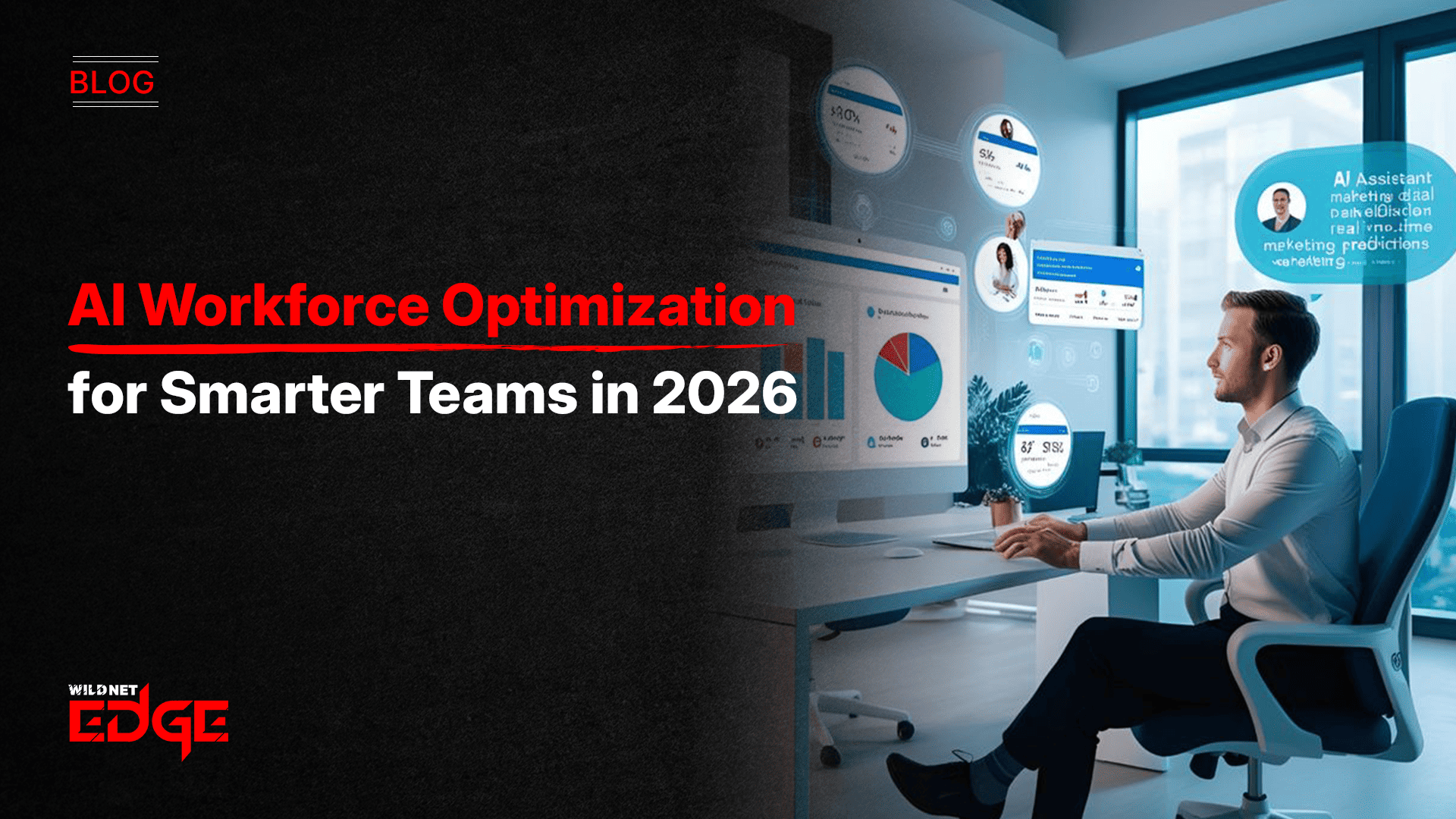Have you ever wondered about the challenges that finance companies face in today’s digital world? With rapid technological advancements, the fintech industry is evolving at an unprecedented pace, presenting both opportunities and hurdles for businesses. Fintech software development might offer the solution you’re seeking as it focuses on creating solutions that enhance financial services through technology. This blog aims to illuminate the core aspects of fintech software development, providing you with insights, best practices, and a structured roadmap to guide your development process in 2026 and beyond.
Fintech Software Development Best Practices
In the fast-evolving world of finance technology, adhering to best practices in fintech software development is essential to not only survive but thrive. The fintech landscape is filled with complex regulations and customer demands that require careful consideration during software development.
Key Principles of Fintech Software Development
- Security First: Given the sensitive nature of financial data, security must be a priority. Implement industry-standard security measures, such as encryption, two-factor authentication, and regular security audits to protect user data.
- Regulatory Compliance: Financial services are heavily regulated. Your development process must ensure compliance with local and international laws such as GDPR, PCI DSS, and AML guidelines. Understanding regulatory demands can significantly reduce operational risks.
- Agility: Adopt agile methodologies in your development process. This allows for faster adaptations to market changes and regulatory requirements. Performing iterative releases and getting feedback can help streamline updates.
- Interoperability: Create software that can easily interact with other platforms. This is crucial for integrating with banks, financial institutions, and payment processors and ensures a seamless user experience.
- Scalability: Design your fintech solutions to scale up as user demand grows. Consider employing cloud-based solutions to handle increased traffic and data processing needs efficiently.
By focusing on these principles, fintech software development can lead to robust and reliable fintech products that meet user needs effectively.
Importance of User-Centered Design in Fintech
User-centered design (UCD) plays a pivotal role in fintech software development. Financial applications can easily become complex and intimidating for users. Thus, creating a user-friendly interface is essential.
- Accessibility: By implementing UCD principles, developers can make their applications more accessible to a broader audience, including those unfamiliar with financial jargon or technology.
- Improved User Experience: Prioritizing user feedback during the development process can help create an intuitive experience. Conducting usability testing will reveal pain points in user interactions and identify areas for improvement.
- Retention and Engagement: User engagement directly links to the design of your application. A well-designed app enhances user satisfaction, encouraging users to return and recommend it to others.
- Differentiation: As the fintech market becomes increasingly saturated, companies that prioritize UCD stand out. Providing a seamless experience can be a unique selling point in a crowded market.
By embodying user-centered design principles, fintech companies can foster trust, enhance retention, and differentiate themselves in a competitive landscape.
Crafting an Effective Fintech Software Development Implementation Roadmap
An effective implementation roadmap for fintech software development is crucial for systematic execution and project success. Such a roadmap helps align stakeholders, streamline tasks, and allocate resources efficiently.
Steps to Develop a Fintech Software Development Implementation Roadmap
- Define Objectives: Begin by clearly outlining your goals. Ask yourself what problems your software solves and how you want it to impact users and the market.
- Research and Analysis: Conduct market research to identify trends, user needs, and competitive gaps. Use this information to shape your product’s features.
- Select a Development Approach: Decide on an appropriate development approach — whether Agile, Waterfall, or a combination. Agile is generally preferred for fintech due to its iterative nature.
- Identify Resources: Establish the resources needed, including skilled developers, designers, and necessary technology stacks.
- Set Milestones and Timelines: Break your project into manageable milestones with clear deadlines. This will help maintain momentum and provide measurable goals.
- Testing and Feedback: Plan for extensive testing and gather user feedback throughout the process. Early-stage feedback helps you make adjustments promptly.
- Launch and Iterate: Finally, launch your product and continue to gather feedback for iterative improvements.
This structured approach ensures that your fintech product aligns with market demands and is developed efficiently.
Key Milestones in Your Roadmap
Setting milestones helps track progress and keep the team motivated. Here are some critical milestones to consider in your implementation roadmap:
- Completion of Market Research: Understanding the competitive landscape and user needs.
- MVP Development: Delivering a minimum viable product (MVP) that includes essential features and a basic version of the app.
- User Testing Phase: Gathering user feedback on the MVP and making necessary adjustments.
- Compliance Review: Ensuring that the software meets all regulatory requirements before launch.
- Launch Phase: Officially making the product available to the public.
- Post-Launch Review and Iteration: Collecting user feedback post-launch and planning for future updates.
By identifying and adhering to these milestones, you can keep the development process organized and goal-oriented.
Choosing the Right Software Development Company
Choosing the right software development company for your fintech needs is crucial for overcoming the unique challenges in the financial sector. Your partner can make or break your project based on expertise, experience, and understanding of the fintech landscape.
What to Look for in a Software Development Company
When evaluating potential companies, consider looking for the following attributes:
- Expertise in Fintech: Ensure that the company has a strong background in developing fintech applications. They should understand the specific challenges and regulations associated with financial projects.
- Technical Proficiency: The development team should have a varied skill set, including expertise in the latest technologies like blockchain, AI, and cloud computing.
- Portfolio: Review the company’s past projects to understand their work quality and range of capabilities. Case studies or client testimonials can also provide insights into their reliability.
- Agile Methodology: A company that employs agile methodologies will be better equipped to respond to changes and deliver high-quality products rapidly.
- Post-Launch Support: Inquire about their support structure after launch. Continuous maintenance and updates are crucial in the constantly changing fintech landscape.
Evaluating Experience in Fintech Software Development
Experience in fintech software development is vital for a successful partnership. Here’s how you can evaluate it:
- Industry Specific Projects: Look for companies that have worked on projects similar to yours. This ensures they will understand your requirements more quickly.
- Reputation and Client Base: A well-regarded company typically has a robust client base and positive reviews. Research their reputation in the market.
- Regulatory Knowledge: Given the importance of compliance in fintech, make sure they have experience navigating different regional regulations.
- Customization Capabilities: The software development company should be able to offer tailored solutions that fit your specific needs, rather than a one-size-fits-all approach.
By carefully considering these factors, you can select a software development company that aligns with your goals and will support your fintech project’s success.
Mobile App Development Company: A Key Player in Fintech
In today’s digital age, mobile apps are not just an extension of services but rather the main platform for user engagement in fintech. Therefore, the choice of mobile app development company is a crucial decision for businesses in this sector.
Importance of Mobile in Fintech Software Development
- User Accessibility: With the increasing reliance on smartphones, mobile apps offer immediate access to financial services. Users can perform transactions, check balances, and manage their finances wherever they go.
- Enhanced User Engagement: Mobile apps enhance user engagement through push notifications, personalized offers, and easier communication channels, like in-app messaging.
- Real-Time Processing: Mobile solutions can offer real-time data and notifications, helping users make informed decisions promptly, a crucial aspect during financial transactions.
- Cost-Effectiveness: Developing a mobile app can be more cost-effective than maintaining a full-fledged web solution, allowing ample features while minimizing operational expenses.
- Competitive Advantage: A well-designed mobile app can set your service apart from traditional financial institutions and competing fintech startups. It’s often the first impression users have of your brand.
Features Every Finance Mobile App Should Have
To be successful, a finance mobile app should incorporate certain key features:
- Intuitive User Interface: A clean, organized layout is crucial for a positive user experience.
- Sign-in Security: Features like biometric logins and two-factor authentication enhance security.
- Transaction History: Users should easily access and review transaction records through the app.
- Budgeting Tools: Incorporating tools for users to set budgets and track expenses can foster user loyalty.
- Customer Support: Offering help via chat, email, or phone within the app ensures that users can get assistance quickly.
Incorporating these features can significantly enhance user experience and satisfaction with your fintech mobile application.
Future Trends in Fintech Software Development
Staying ahead of trends is essential in the dynamic fintech landscape. Emerging technologies and regulatory shifts shape the trajectory of fintech software development in 2026 and beyond.
Emerging Technologies Shaping Fintech
- Artificial Intelligence (AI): AI can streamline customer service through chatbots and predictive analytics, improving user experience and operational efficiency.
- Blockchain: This technology ensures transparent, secure transactions and can improve trust, providing an innovative foundation for smart contracts and decentralized finance (DeFi).
- Internet of Things (IoT): IoT devices can connect to various financial tools, offering automated alerts and services that cater to real-time user needs.
- RegTech Solutions: Regulatory technology can substantially ease compliance burdens through automation and data analytics, allowing fintech companies to focus on growth rather than navigation of regulations.
- Digital Identity Verification: Automated solutions for ID verification can enhance security measures while making onboarding a breeze.
Regulatory Changes to Consider in Development
Keeping an eye on regulatory developments is crucial for successful fintech software development. Future regulations may include:
- Enhanced Data Privacy Laws: Continuing developments around GDPR and CCPA may see increased scrutiny and stricter enforcement of data privacy standards.
- Open Banking Initiatives: As open banking continues to gain traction, fintech products will need to adapt to new standards of data sharing and user consent requirements.
- Central Bank Digital Currencies (CBDCs): The advent of CBDCs may reshape payment systems and necessitate compliance paths for various financial services.
- Anti-Money Laundering (AML): Continued enhancements to AML regulations may necessitate improved real-time transaction monitoring and reporting capabilities.
Monitoring these trends can help companies remain compliant and innovative, providing them with robust services that cater to a future-oriented audience.
Case Studies in Successful Fintech Software Development
Studying case studies can provide valuable insights into successful and failed approaches in fintech software development. Learning from others helps avoid common pitfalls and capitalizes on effective strategies.
Notable Fintech Software Development Success Stories
- Revolut: This digital banking app transformed personal finance through its innovative approach to banking, offering users multi-currency accounts, cryptocurrency trading, and budget tracking, all in one platform. Their user-friendly design and strategic marketing propelled rapid growth.
- Stripe: Renowned for its seamless payment processing, Stripe’s development focuses on API-driven solutions. By offering easy integration for developers, they revolutionized online transactions, making it a go-to solution for businesses worldwide.
- Robinhood: This trading platform successfully democratized investing by eliminating commissions and introducing easy-to-use mobile interfaces. It contributed significantly to the rise of retail investing, engaging a younger audience and ensuring an engaging user experience.
- Plaid: This company connects various bank accounts to apps like Venmo and CashApp, allowing for easy transactions between users. Its API has become crucial for many apps in the fintech space, showcasing the growing relevance of connectivity in finance.
Lessons Learned from Fintech Software Development Failures
- LendUp: While aiming to provide better lending options, LendUp faced regulatory scrutiny for its marketing practices, indicating that compliance cannot be overlooked.
- Quibi: Though not solely a fintech failure, Quibi’s approach to mobile-first content highlights the dangers of underestimating user experience and market needs, showing the necessity of understanding customer expectations thoroughly.
- X.com: A former online bank founded by Elon Musk that eventually became PayPal. Despite initial enthusiasm, it failed to streamline user experience adequately, emphasizing the importance of customer services and satisfaction.
These case studies underscore the importance of having a focused development strategy in fintech software solutions. They highlight that whether through success or failure, the key lessons learned drive future innovations, ultimately benefiting the industry.
Conclusion
In summary, fintech software development is crucial in shaping the future of financial services. From understanding best practices to selecting the right development partners, every aspect plays a fundamental role in your company’s success. Partnering with an expert like Wildnet Edge, known for its AI-first approach, can provide you with the tools needed to navigate the complexities of fintech. As you explore opportunities in the fast-paced fintech landscape, remember to leverage insights from this guide to inform your choices and strategies. Don’t hesitate to reach out for further consultation or to explore more.
FAQs
Best practices include user-centered design, agile methodologies, and robust security measures, focusing heavily on compliance and scalability.
Begin by defining clear goals, conduct thorough research, and identify resources. Develop a structured outline with defined milestones and utilize feedback iteratively.
Evaluate their experience in the fintech industry, ensure they understand financial regulations, and check their portfolio for similar projects.
With the rise of mobile banking, apps provide essential accessibility and convenience for users while enhancing engagement and services.
Emerging technologies like AI, blockchain, and regulatory frameworks are pivotal in shaping the future of fintech applications, requiring ongoing adaptation and innovation.

Managing Director (MD) Nitin Agarwal is a veteran in custom software development. He is fascinated by how software can turn ideas into real-world solutions. With extensive experience designing scalable and efficient systems, he focuses on creating software that delivers tangible results. Nitin enjoys exploring emerging technologies, taking on challenging projects, and mentoring teams to bring ideas to life. He believes that good software is not just about code; it’s about understanding problems and creating value for users. For him, great software combines thoughtful design, clever engineering, and a clear understanding of the problems it’s meant to solve.
 sales@wildnetedge.com
sales@wildnetedge.com +1 (212) 901 8616
+1 (212) 901 8616 +1 (437) 225-7733
+1 (437) 225-7733
















 AI Development Services
AI Development Services Industry AI Solutions
Industry AI Solutions AI Consulting & Research
AI Consulting & Research Automation & Intelligence
Automation & Intelligence













